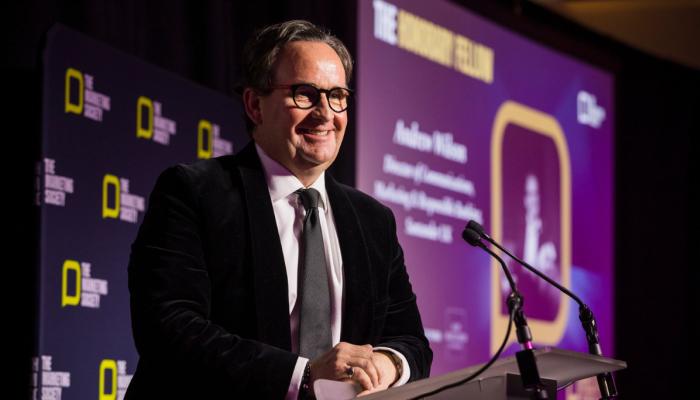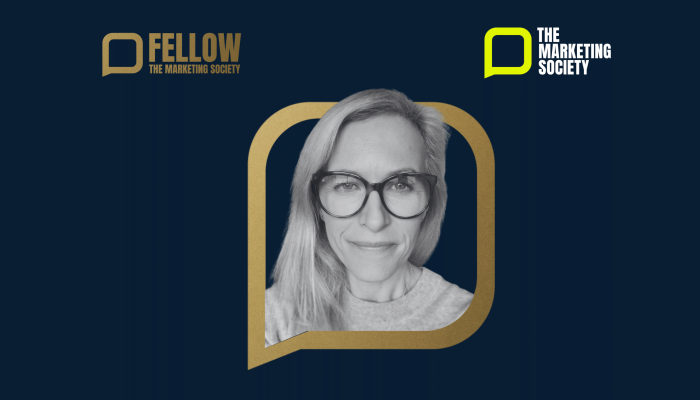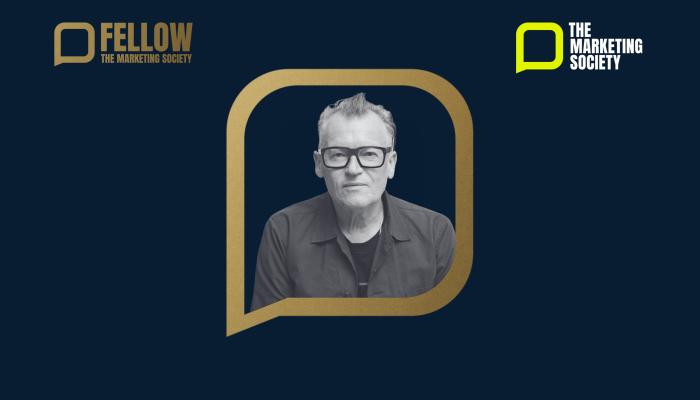Born in Stirling, Allan worked briefly as a baker but left for a career in journalism because “there was not enough dough”.
He was appointed Managing Director of Media Scotland in 2014 and has overseen record audience and revenue growth as the company transformed into Scotland’s biggest digital newsbrand.
The diverse portfolio includes the Daily Record and Sunday Mail, dailyrecord.co.uk, Business Insider, Glasgow Live, Paisley Daily Express, Media Scotland Events, Quay Production and 17 market-leading local titles stretching from Perth to Dumfries.
Allan’s early career was spent as a reporter on local newspapers. He became Scotland’s youngest Editor at 23 at the Clydebank Post then made the jump to national newspapers as a sub-editor at The Sun.
After spells at Scotland on Sunday, the Evening News and the Daily Record, Allan was appointed Editor of Scotland’s biggest-selling newspaper, the Sunday Mail where he stayed for nine years winning awards for exposes on Scotland’s criminal gangs.
Allan left to become editorial director of Trinity Mirror’s five nationals before returning as Editor of the Daily Record in 2011 to steer the birth of Media Scotland – a merger of the Daily Record and Sunday Mail and Scottish and Universal Newspapers. Media Scotland has won a clutch of awards - the Daily Record was named newspaper of the year three years in a row, Digital Team of the Year and UK Sports Team of the Year.
Allan lives in Dunblane with his wife Margaret and dog Hector. Now that their three children have left and the cats have gone his career has progressed - he is now the third most powerful person in his family.
Outside work, Allan’s main interest was running having completed marathons in London, Amsterdam, Berlin, New York (twice) and Chicago... although he has still to win one.
We caught up with Allan to find out more...
Prior to your position as Managing Director and Editor-in-Chief at Media Scotland, you were Editorial Development Director for Trinity Mirror Nationals. Were you keen to return to work in the Scottish Media specifically? If so, what was the draw?
I loved the buzz of living and working in Canary Wharf, the brilliant teams at the Mirror and The People, the diversity of culture, brilliant restaurants, theatre and football.
All that combined with working in the Mirror on big technology change programmes helped broaden my horizons and look at Scotland differently.
We knew then that the elephant in the room was a T-Rex called Facebook and Google, and that unless we scaled up and became – not digital first – but platform agnostic we would be eaten alive. Merging the Record and Mail with S&UN gave us greater digital scale and allowed us to sell our audience under the banner of Media Scotland.
It has not been easy, and I have made mistakes on the way, but fortunately I have a forgiving boss and a brilliant team.
Ironically, I think the Scottish media gets a bad press. Our campaigning journalism is world class, our commercial teams are customer focussed and we are consistently creative. Although print circulation is challenged our overall audience is higher than five years ago.
What’s the main differences in working with a solely Scottish audience as opposed to the nationals?
With digital, our audience stretches beyond frontiers. It fluctuates but a quick check on Omniture just now shows 15% coming from outside Scotland, mainly ex-pats catching up on news and sport.
On commercial we offer customers a programmatic solution that targets audience no matter their location or network.
Scale is the biggest difference. Write a story about a celeb in London, and the odds are you will never see them outside TV. Write a story about a celeb in Scotland, and the odds are you will be sitting next to them at a dinner the next night. Cue an embarrassing night all round. It’s happened to me more than once.
How do you see the media industry in Scotland developing in the future? What are the main challenges that are being focussed on by Media Scotland?
Consolidation will become the norm over the next 12 months. We have seen successful merger of Trinity Mirror Regionals and Local World in 2015 and deals like that form a key part of our strategy.
We have the advantage of scale and support as part of a big PLC, but I do fear for smaller publishers. Some are already on life support.
Our focus is on protecting print which is a massive profit generator and accelerating digital growth through new products and services such as glasgowlive.co.uk and our video production and sales team.
Media Scotland has a group which meets once a week to assess new ideas from any source. Our workflow is simple: what’s the idea, translate that into a vision with goals and milestones, build a business case, get it into the product pipeline and then launch. If the new product doesn’t work, we fail fast and start again.
The publishing industry has had to react and adapt to technological advancements at a rate of knots. How does one stay ahead of the curve in what is an ever-changing landscape of consumer habits?
Consistent market intelligence and insight is important but staying close to your customers, your staff and family is fundamental. The first indicator of a seismic shift might not be in the details of an Enders Analysis report, but in a conversation about a new app with your teenage daughter. That’s where the best creative ideas come from – and the most honest feedback.
You have lectured on the history of disruptive technologies, another impressive string to your bow! How can companies recognise which innovations should be the focus of their strategies early enough to make sure they’re prepped, ready and informed enough to deal with it? And predictions for the next major disruption?
As I said, the best early warning system is listening to those around you. On pure tech, however, it is difficult to sort out the wheat from the chaff. Just a year ago we were all getting excited about header bidding and jumping on that bandwagon, but while it’s not a dead duck, it’s clear there are issues around latency.
Everyone is looking for the silver bullet, but what you need is layer upon layer of connective innovation to build critical mass.
I happen to think that disruption is good for the soul. It is the norm. In the last 30 years we have gone from a period of extreme calm but to the kind of disruption that mankind has lived with for millennia.
Every generation thinks they are living through the greatest period of change in history, but that is a conceit of the living who assume they are different to generations that have gone before. To understand the future you need to understand the past.
In my lecture, I talk about the first Daily Record in 1895, and how a major revenue source was from the sale of new pianofortes. Now they had been about for 200 years, but for the first time they were being cheaply mass-produced. One day, they said, every home in Scotland would have a pianoforte.
Then came the great disruption of the gramophone, then cinema, radio, TV, video tapes, DVD, internet, social media…
And with each new invention, you got someone (probably in the Guardian) claiming it was the death-knell for the old.
While platforms may change, the one thing that stays constant is brilliant creativity, and wonderful storytelling.
If I were to put a bet on the future, it would be on supporting genuinely creative work that stands out in the crowd. Creativity is what sets us aside from the T-Rexs in the room.
Media Scotland are title sponsors of Digital Day 2017 which is taking place in Glasgow on Thursday October 5.
Follow Allan on Twitter



